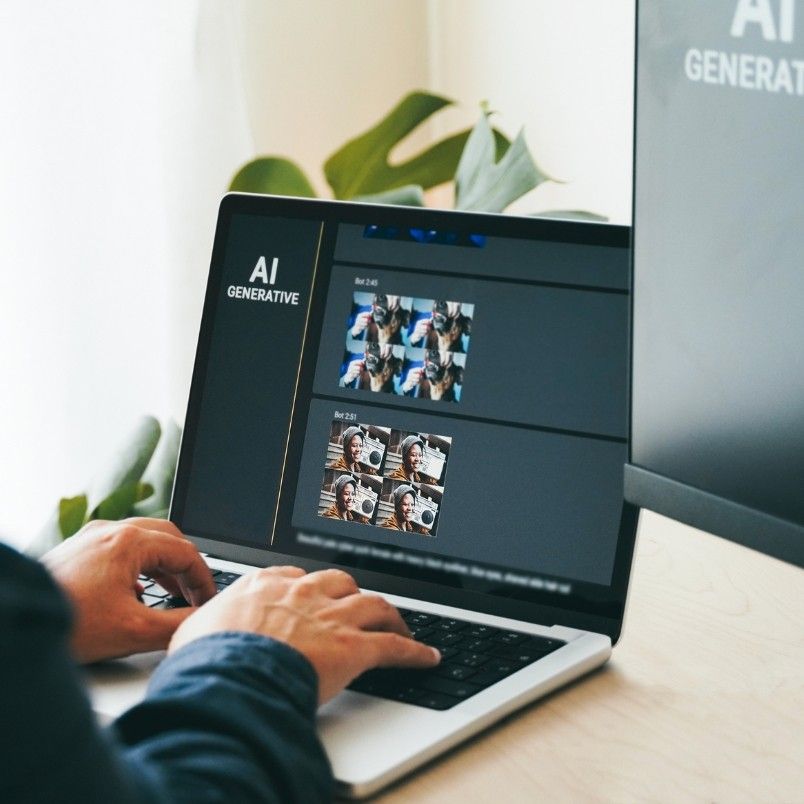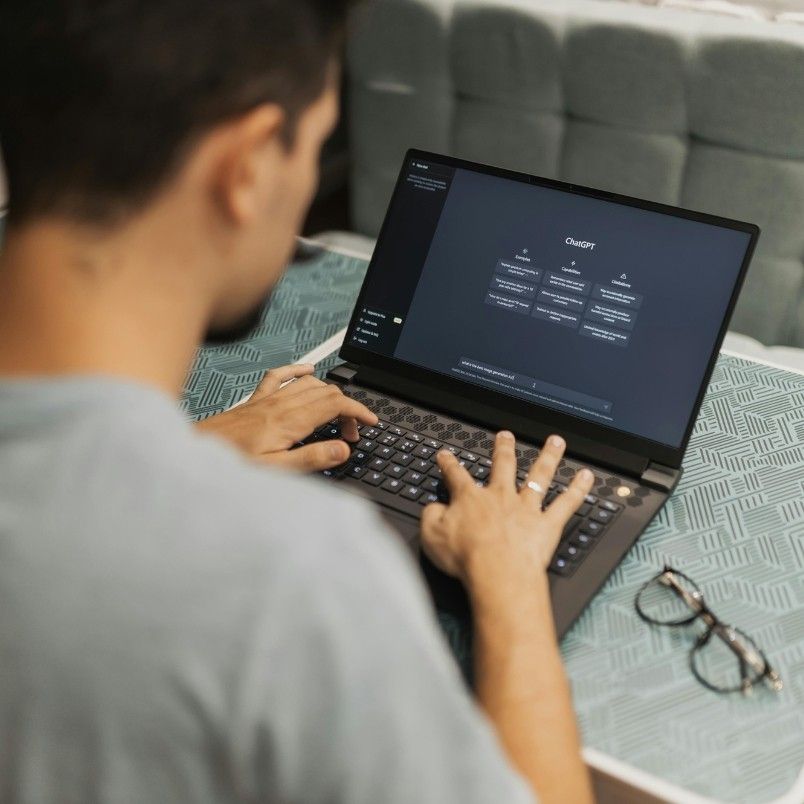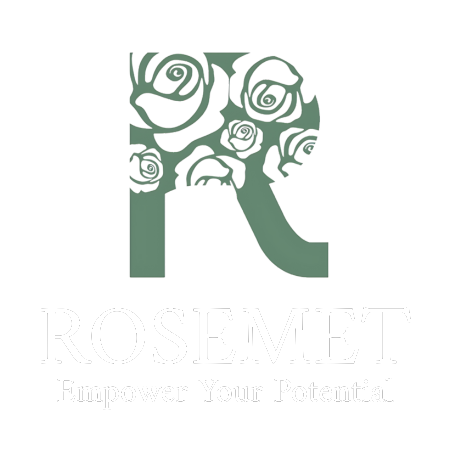Generative AI in Project Management : Team Collaboration Tools and Techniques
By: Hajime Estanislao, PMP®; Editor: Geram Lompon; Reviewed by: Alvin Villanueva, PMP®
Projects may stall, meetings blur, and collaboration suffers when communication is fragmented, while teams are overloaded with repetitive tasks. Sound familiar?
Imagine a workday where meeting notes write themselves, task lists update instantly, and every team member stays aligned—whether they’re in the same room or across different time zones.
Generative AI isn’t some distant vision; it’s already transforming the way project teams collaborate and achieve results. It automatically creates project documents, bug reports, and action summaries, freeing up valuable time and boosting productivity.
Boost Team Productivity and Project Efficiency with AI-Powered Tools
With the right AI-enabled tools, teams can reduce administrative burdens, stay aligned, and reclaim valuable time for impactful work. From generating user stories and drafting project documents to extracting insights from previous projects, AI enables teams to work smarter, not just faster, without compromising quality.
AI-powered collaboration tools boost forecasting accuracy and streamline decision-making. By automating routine workflows, generative AI helps companies save money and consolidate features that previously required multiple apps.
AI-powered tools analyze calls to provide coaching and insights, while automated check-ins keep everyone informed and aligned. Workflow automation eliminates repetitive tasks, benefiting organizations of any size. By pulling critical details from internal resources, AI generates concise summaries that support smarter decision-making. Simply put, AI enhances your team’s productivity by organizing information clearly and sharing it seamlessly.
AI helps teams leverage available resources when planning project timelines, schedules, and goal setting. AI can also generate summaries and reviews of project performance for continuous improvement.
This article shows how generative AI effectively impacts

What is Generative AI?
Generative AI describes artificial intelligence systems that create new content, such as text, visuals, summaries, and plans, by identifying patterns in existing data. In
These tools can create project documents and summaries, streamlining the documentation process. AI can also extract information from an internal knowledge base to generate summaries and support project decisions.
Rather than replacing project managers or team members, generative AI works as a collaborative assistant, supporting decision-making, improving documentation workflows, and freeing time spent on repetitive or manual tasks.
Generative AI enhances team productivity by streamlining documentation and improving communication. Organizations gain efficiency through automated workflows and integrated AI features that centralize tasks usually spread across multiple tools. AI also helps project managers optimize resources when planning timelines, schedules, and goals, ensuring projects run smoothly and successfully.

How is Generative AI relevant in Project Management ?
Generative AI is becoming increasingly relevant in
- Project Documentation and Reporting: Generative AI can create first drafts of project charters, status updates, risk logs, meeting summaries, and retrospectives. It reduces the time teams spend writing and formatting while improving consistency. AI also helps teams maximize the use of available resources when planning project timelines, schedules, and goal setting, ensuring the efficient use of time and capacity.
- Task Management and Workflow Support: AI-powered tools can auto-suggest tasks based on goals, deadlines, or meeting conversations. It helps project managers assign responsibilities, clarify dependencies, and maintain realistic timelines. Integrated AI and workflow automation streamline processes that require other tools, making operations more efficient and effective.
- Decision Support: By analyzing project data, generative AI can identify trends, flag potential risks, and offer suggestions. It enables faster and more informed decision-making, particularly when managing multiple stakeholders or dealing with changing requirements.
- Team Alignment and Communication: AI can condense lengthy conversations into concise action items, translate complex technical updates for business audiences, and summarize entire threads into key highlights. It supports clear, ongoing communication without overwhelming team members.
- Knowledge Retention and Access: Generative AI enables teams to access historical knowledge, such as lessons learned or best practices, by converting unstructured data into searchable summaries. It can extract information from an internal knowledge base to generate summaries and support team learning, which is particularly relevant in organizations with high project volumes or rotating team members.

How is Generative AI enabling Team Collaboration?
In busy project environments, where team members juggle tasks, timelines, and communications, generative AI fosters a more connected and productive experience. Integrated AI streamlines workflows by consolidating tasks typically handled by multiple tools into a single, seamless platform.
Automated check-ins keep everyone informed, providing real-time updates that ensure everyone shares a clear view of project progress. By minimizing manual coordination, generative AI empowers teams to collaborate more effectively, stay organized, communicate clearly, and achieve their goals together.
Simplifying Communication Across Channels
Generative AI can summarize long email threads, meeting transcripts, or chat conversations into clear highlights and action points. While AI can generate summaries of conversations, it may not always capture the full context, especially in fast-moving discussions. It ensures that members, whether they attended the meeting or joined late for a discussion, are informed and aligned.
After a project check-in, an AI assistant can automatically extract information from meeting transcripts to generate and share a concise list of tasks, decisions, and blockers, reducing the need for manual note-taking or backtracking.
Automating Meeting Outputs and Follow-ups
AI can instantly and automatically create meeting minutes, assign action items to relevant team members, and set reminders and schedules without additional coordination as part of workflow automation.
This helps project teams stay on track with minimal effort and a reduced chance of missing important details, while keeping them focused on routine tasks.
Benefit: Spending less time writing summaries means more time can be focused on execution and collaboration.
Keeping Teams Aligned in Asynchronous Workflows
In distributed or hybrid teams, real-time updates are not always possible. Generative AI bridges this gap by helping keep distributed teams on the same page, providing summaries, context, and action items that allow team members to pick up where others left off, regardless of time zone or schedule. These capabilities also enhance the team’s productivity.
Supporting Role-Specific Clarity
Organizations benefit from efficient communication enabled by generative AI. AI can tailor content based on roles, re-framing technical updates into business terms for stakeholders, or breaking down objectives into user stories for developers. It reduces miscommunication and promotes shared understanding across cross-functional teams.
Strengthening Knowledge Sharing and Accessibility
Generative AI tools can extract information from an internal knowledge base to generate summaries and organize past project documentation, making it easier for team members to find answers, learn from similar projects, or onboard new colleagues. It supports a culture of openness and continuous learning.

Reasons You Need to Know AI-Enabled Tools and Techniques
As a project manager or team leader, understanding how to work with AI-enabled tools and techniques is no longer optional; it is a part of leading effectively in modern project environments. These tools are becoming embedded in the platforms your teams already use, and knowing how to guide their use can directly impact how well your projects stay on schedule, meet objectives, and adapt to change.
Teaching your team how to work with AI is not about replacing human skills, but rather about strengthening them with support and reducing unnecessary workload, thereby enhancing productivity.
- Helps your team automate repetitive or time-consuming tasks
- Supports faster decision-making with real-time project insights
- Keeps communication organized and focused across tools and time zones
- Improves accuracy in reporting, documentation, and task tracking
- Supports knowledge sharing and upskilling within the team
- Builds team confidence in using AI responsibly and securely
- Reduces friction in asynchronous or hybrid collaboration
- Organizations benefit from workflow automation enabled by AI, making processes more efficient.
- Increases your own credibility and leadership value in tech-enabled environments
- Prepares your projects and people for future AI developments
- Aligns with enterprise tools already integrating AI features (e.g., Microsoft 365, Google Workspace, PMI Infinity)

Step-by-Step Collaboration Using Generative AI
Integrating generative AI into your team’s workflow doesn’t mean starting from scratch. Instead, it complements your existing practices, streamlining workflows, consolidating tools, and improving productivity and communication.
Whether your team follows a traditional waterfall method or an agile approach, you can gradually introduce AI at key points to simplify tasks, reduce manual effort, and strengthen team alignment. Here’s a practical, step-by-step guide to smoothly integrate generative AI tools into your everyday project cycles.
Step 1: Kick Off with Clarity
Begin the project by utilizing generative AI to aid in preparing kickoff materials. Generative AI helps teams plan project timelines, schedules, and goal setting based on available resources. You can create a draft project charter, team roles, initial timelines, and objectives using tools such as PMI Infinity, Notion AI, or Microsoft Copilot. These tools help you shape your initial project scope and team alignment without having to start from scratch.
- Use PMI Infinity to outline your charter following PMBOK standards.
- Ask ChatGPT or Notion AI to suggest objectives based on your project goals.
- Prepare kickoff slide decks with AI-generated summaries of key points to enhance clarity and efficiency.
- Share draft documents with the team for review and refinement.
- Use AI tools to align the objectives with project timelines and available resources

Step 2: Set Up Collaboration Tools with AI Integration
Choose platforms your team already uses and activate their AI capabilities. Platforms like Asana, ClickUp, or Monday.com offer built-in integrated AI that helps manage tasks, predict delays, and generate progress updates. These integrated AI features streamline collaboration, reduce reliance on other tools, and consolidate multiple functionalities for greater efficiency. Ensure your team knows how to access and utilize these features from the outset.
- Enable AI assistants in your PM tool of choice.
- Organize boards or task lists by sprint (Agile) or phase (Traditional)
- Assign permissions so team members can contribute updates directly..
- Schedule AI-generated status reports to reduce reporting fatigue
- Leverage workflow automation to make
project management more efficient
Step 3: Use AI Assistant for Meeting Preparation and Follow-Up
AI can support collaboration before, during, and after meetings. Use it to prepare agendas, record meeting content, and distribute summaries with action items. AI can also automatically create meeting transcripts and action items. Tools plug into video conferencing platforms and create immediate documentation.
- Use AI to generate a structured agenda from your notes.
- Activate a meeting transcription tool for real-time capture.
- Automatically send summaries and assigned tasks post-meeting
- Store transcripts and action logs in a shared workspace (e.g., Google Drive or Notion)
- AI tools can generate summaries and extract information from an internal knowledge base to support meeting follow-up and subsequent tasks.
- AI-powered tools can analyze sales calls and provide reviews for continuous improvement

Step 4: Co-create and Refine Project Artifacts
Whether drafting user stories in Agile or preparing a detailed schedule in a traditional plan, generative AI can help generate first drafts and refine wording for clarity and consistency. It makes artifact creation more efficient and supports collaboration throughout the process. It encourages early collaboration without slowing down progress.
- Use ChatGPT or Notion AI to draft user stories or requirement statements.
- Refine backlog items in tools like Jira or Azure DevOps using AI summaries.
- Apply PMI Infinity to review risk logs or communication plans.
- Encourage team members to provide feedback directly on the AI-generated content.
- Organizations benefit from AI-driven refinement of project documentation, improving efficiency and consistency across teams.

Step 5: Monitor Progress and Improve Iteratively
As the project progresses, AI can help you monitor performance and suggest adjustments. Workflow automation and efficient AI tools can enhance your team’s productivity by streamlining processes and keeping everyone focused on core tasks. With tools that detect anomalies, track metrics, and forecast delays, you keep your team informed and responsive.
- Utilize dashboards in ClickUp or Asana to monitor AI-based task progress and receive risk alerts.
- Conduct retrospectives using AI-generated summaries of sprint performance.
- Collect feedback using AI-enhanced forms or sentiment analysis (e.g., from Microsoft Forms or SurveyMonkey AI)
- Refine your next sprint or phase using insights from AI trend reports.
- Leverage AI to generate summaries and extract information from your internal knowledge base, supporting project reviews and continuous improvement.

Security and Data Privacy in AI-Driven Collaboration
As organizations increasingly rely on AI-powered collaboration tools to manage projects and automate tasks, ensuring enterprise-grade security and robust data privacy becomes paramount. AI models process vast amounts of sensitive project data, including internal communications and strategic documents, while implementing strong safeguards at every level.
Leading AI tools for
Regular security audits and timely updates are critical to maintaining a secure collaboration environment. By routinely reviewing access logs, updating permissions, and patching vulnerabilities, organizations stay ahead of threats. Additionally, AI-powered automation can enhance data privacy by streamlining processes such as data encryption and access management, thereby reducing the risk of human error.
Transparency and accountability are key when working with AI-driven tools. Establishing protocols related to data storage, sharing, and retention ensures that all team members understand how to handle information.

Best Practices for Generative AI in Project Management
To realize the benefits of generative AI in
Select AI tools and models that are well-suited to your team’s needs. Not all AI solutions are created equal, so evaluate options based on their ability to handle your specific project workflows and deliver reliable results. High-quality data is the foundation of effective AI; ensure your tools are trained on accurate, relevant information to support better decision-making and consistent outputs.
You can set up a robust testing and validation process to review AI-generated content before it is used in critical project documentation or communication. It helps maintain quality and ensures that outputs align with project requirements. Change management is also crucial: prepare your team for new workflows by providing comprehensive training and ongoing support so everyone feels confident using AI tools.
Monitor and evaluate AI performance, gathering feedback from your team to identify areas for improvement. Encourage a culture of innovation and experimentation, empowering team members to explore new applications of generative AI in their daily tasks.

Overcoming Challenges When Adopting Generative AI
Adopting generative AI in
A phased implementation approach allows teams to gradually adapt to new workflows, minimizing disruptions and ensuring a smooth transition. Investing in employee training and development is crucial for developing the skills necessary to utilize AI tools and comprehend their outputs. Guidelines and protocols should be established to ensure everyone understands their responsibilities when working with AI-powered solutions.
Collaboration between project teams and AI developers is key to ensuring that tools are tailored to real project needs and deliver meaningful results. Continuous monitoring and evaluation of AI performance help identify and resolve technical or operational issues; a culture of experimentation encourages teams to find creative ways to leverage AI in their projects.
A comprehensive risk management plan should address concerns about data privacy and security, ensuring that sensitive project data is always protected. By tackling these challenges head-on, organizations can unlock the full potential of generative AI in

Considerations: AI Tools are not a Panacea
While generative AI is a powerful tool for collaboration and project execution, it is a must to recognize its limitations. AI can assist with drafting, summarizing, and organizing information, but it does not understand project context the way a human does.
For example, AI-generated summaries may not always capture the full context of complex project discussions. Nuance, judgment, interpersonal dynamics, and strategic priorities still require the discernment of a skilled project manager and team.
Over-reliance on AI may also lead to superficial outputs, a lack of critical analysis, or the false assumption that AI-generated insights are always correct. Most people benefit from AI suggestions as a starting point, but human oversight is still necessary.
Teams should treat AI suggestions as a starting point, not final answers. Validation, discussion, and oversight are still needed, especially when making decisions that affect scope, resources, or stakeholders.
Responsible AI use also demands attention to data privacy, version control, and safeguarding organizational knowledge. Generative AI can significantly boost productivity, but it’s most effective when driven by clear human intent, thoughtful leadership, and active team engagement.

Alternatives: Expert Knowledge
Generative AI can support collaboration and should complement, rather than replace, expert knowledge. Organizations benefit from combining expert knowledge with AI to enhance productivity, streamline workflows, and enable teams to focus on core tasks. A well-informed project manager who understands
Combining expert knowledge with AI assistance creates a more balanced and effective project environment. When you understand why a communication plan works or how to structure a project schedule according to best practices, you are more capable of evaluating and adjusting AI-generated outputs to suit the project’s needs.
Familiarity with project technologies, such as scheduling tools, collaboration platforms, and portfolio management systems, enables you to utilize AI more strategically. Knowing the capabilities and limits of both human and machine input helps you align tools to outcomes, delegate wisely, and maintain project integrity across teams and timelines.

Wrapping Up: Productivity Upgraded
Generative AI is improving how teams collaborate, communicate, and execute project work. By integrating AI tools and techniques into familiar workflows, project managers can reduce manual effort, clarify communication, and support faster, more informed decision-making. Generative AI offers a seamless experience, making
When paired with sound
References
ClickUp. (2025). 15 best AI
Digital Project Manager. (2025). Best AI
Forbes Technology Council. (2025, April). How to manage enterprise security amid AI advancements. Forbes. Retrieved from https://www.forbes.com/councils/forbestechcouncil/2025/04/17/how-to-manage-enterprise-security-amid-ai-advancements/
PMI. (2025). PMI Infinity™: Your AI-powered
Slack. (2025). What is an AI knowledge base? Tools, features, and best practices. Retrieved from https://slack.com/blog/productivity/what-is-an-ai-knowledge-base-tools-features-and-best-practices
Keywords: Automate repetitive tasks, sales teams, google docs, paid plan, other apps, sweet spot, billed annually, success

